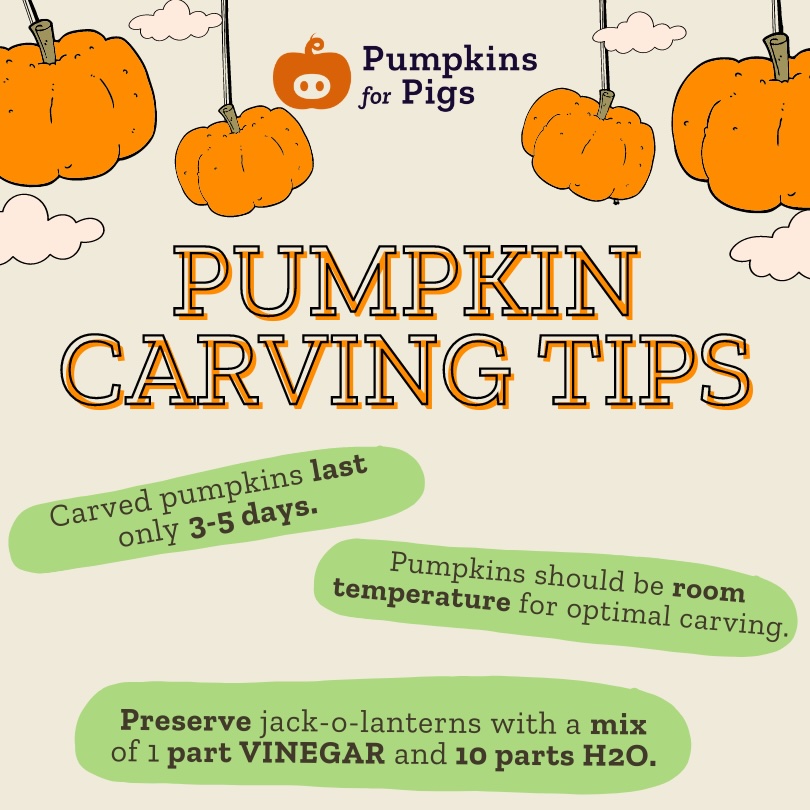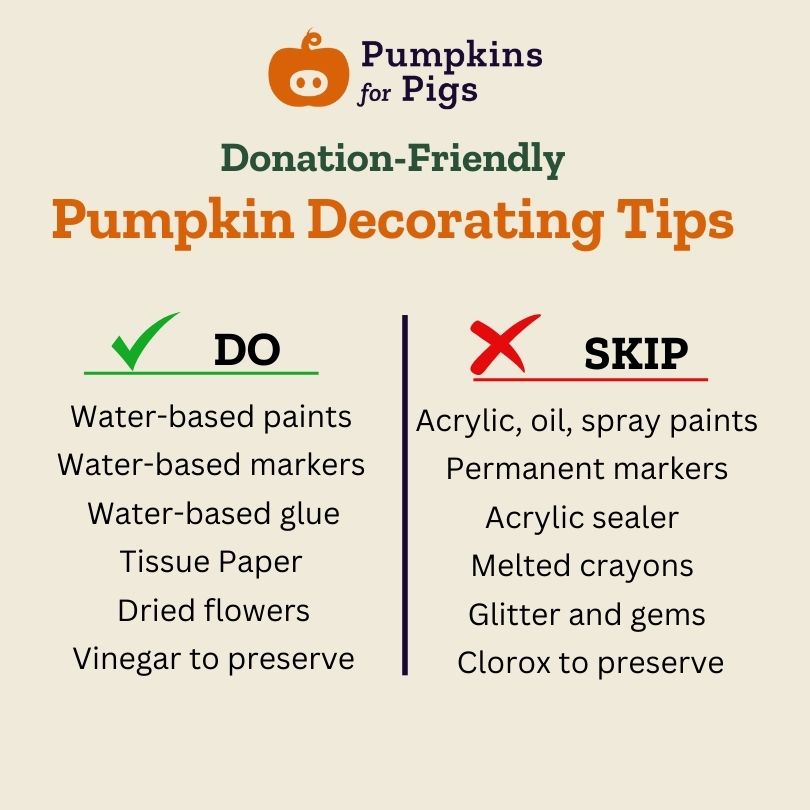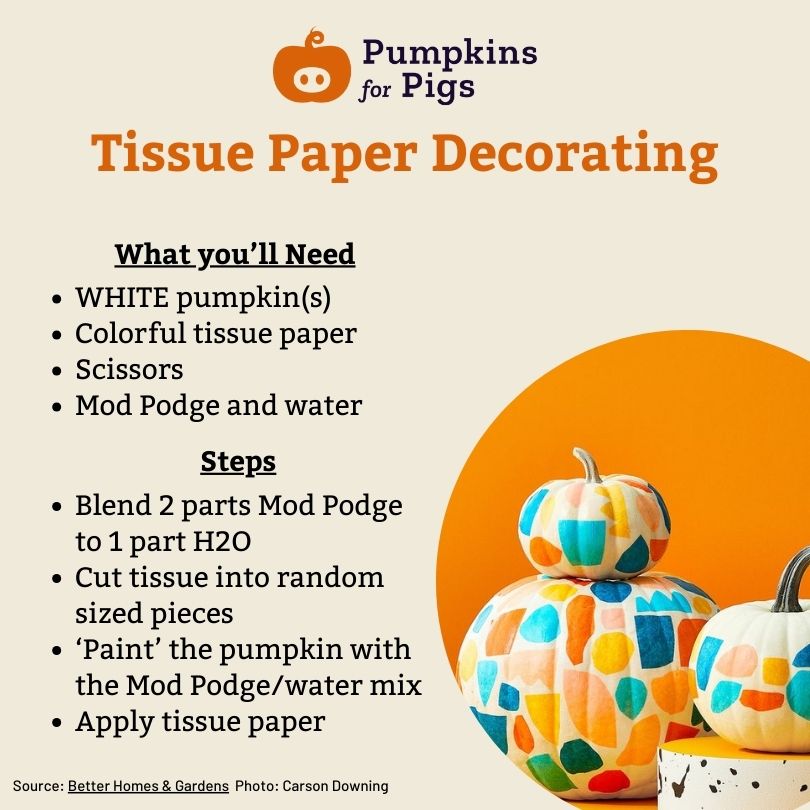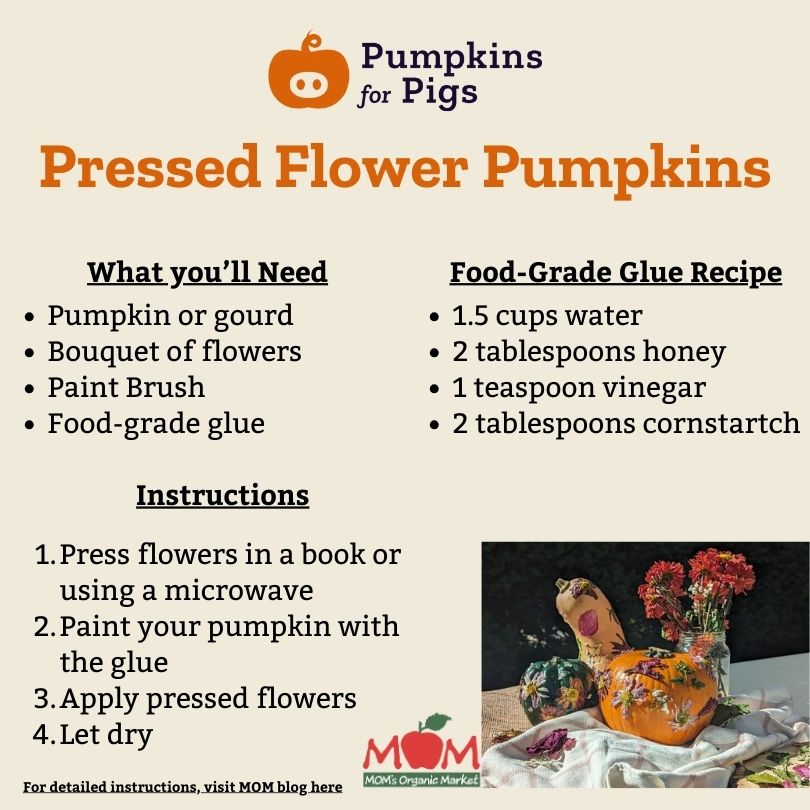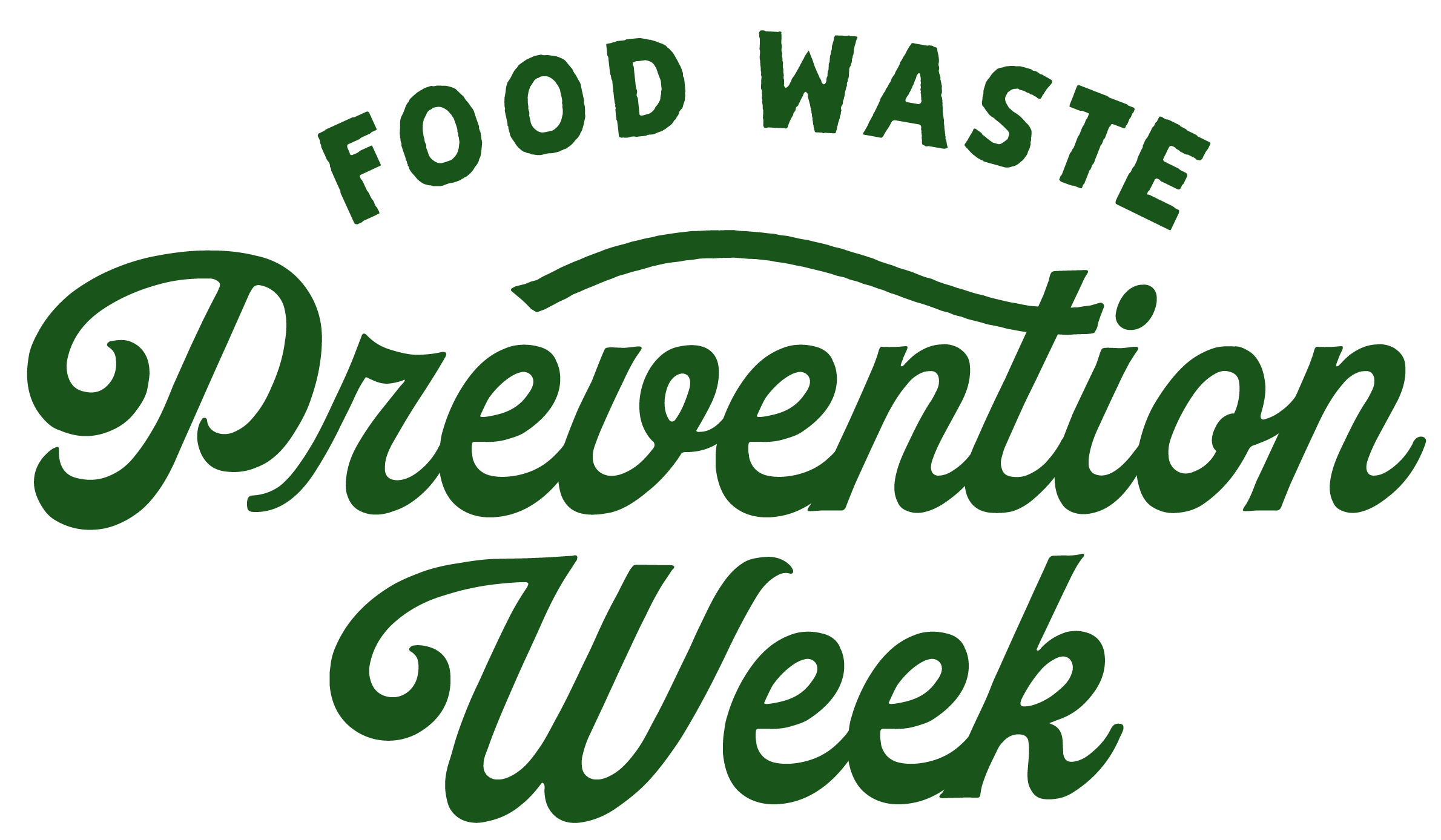RESOURCES
Below are tips on pumpkin decorating and links to other organizations with tips to reduce food waste in YOUR kitchen. We’d love to hear about your creative solutions so we can share them with the community. Share with us!
Pumpkin Decorating Tips
Whether you carve or decorate, there are lots of ways ensure your pumpkins, gourds, and other squash can still be donated to livestock and resuced animals in your community. Here are just a few simple tips so your pumpkin is still edible and ready to go to a donation site for feed.
- Use water-based paints, markers, and glues.
- Try tissue paper, dried flowers, and other organic/editable materials.
- Use 1 part vinegar to 10 parts water to preserve carved pumpkins.
Have other ideas?
We would love to have you submit your creative ideas through our Contact Us form.
ADDITIONAL RESOURCES
Below are organizations that can help you reduce food waste in your kitchen everyday.
Food Waste Prevention Week planning team represents a variety of stakeholders across the food, business, government, and environmental education sectors that share a passion for reducing food waste to address food insecurity in our community, save families money, and support a healthier environment. Check out the latest news and webinars to learn more tips to reduce food waste in your kitchen.
Natural Resources Defense Council’s SaveTheFood.com. Food is being wasted at an alarming rate. And we – consumers – are the largest source of it. More than grocery stores and restaurants combined. But there’s good news: we can do something about it. Everything we need is right here (and in our fridges). Try the Guest-imator, Meal Prep help, learn better food storage tips and so much more!
LEARN MORE
Food loss and waste is a global problem with an estimated 40% of all food lost (in the supply chain from picking to the store) or wasted (uneaten and thrown away). In the US, that food is worth $470+ billion. Bread is the most wasted food, globally. Perhaps most surprising is that we waste food equally despite economic circumstance. Imagine that the resources required to produce that food — farm labor to tend and harvest, water to grow, and fuels to transport — are also wasted. 24% of landfill municipal waste is food, which, when it breaks down, produces methane and carbon dioxide. It is a solvable problem if we each do our part. Learn more about food waste and the programs to reduce it from the links below as we work to reduce food waste by 50% by 2030.
ReFED is a U.S.-based nonprofit working to catalyze the food system toward evidence-based action to stop wasting food. Check out their food waste data-based insights, see how they connect capital and innovation, and bring stakeholders together to collaborate and learn.

Mailing Address
P. O. Box 1096
Leesburg, VA 20177-1096

